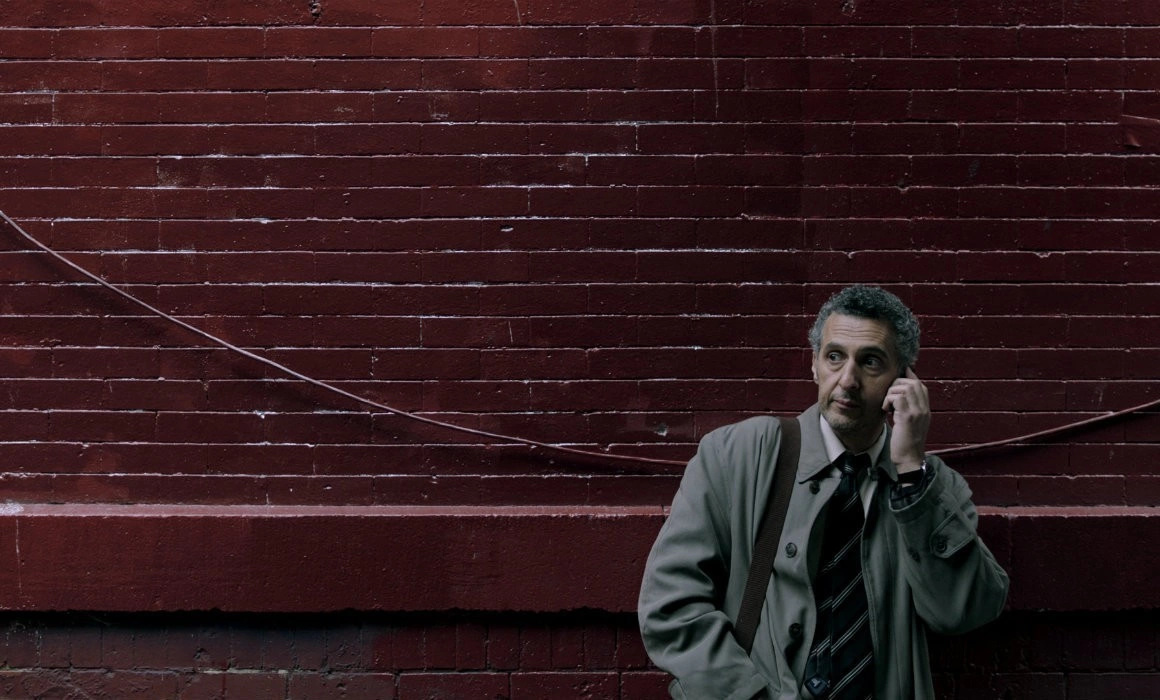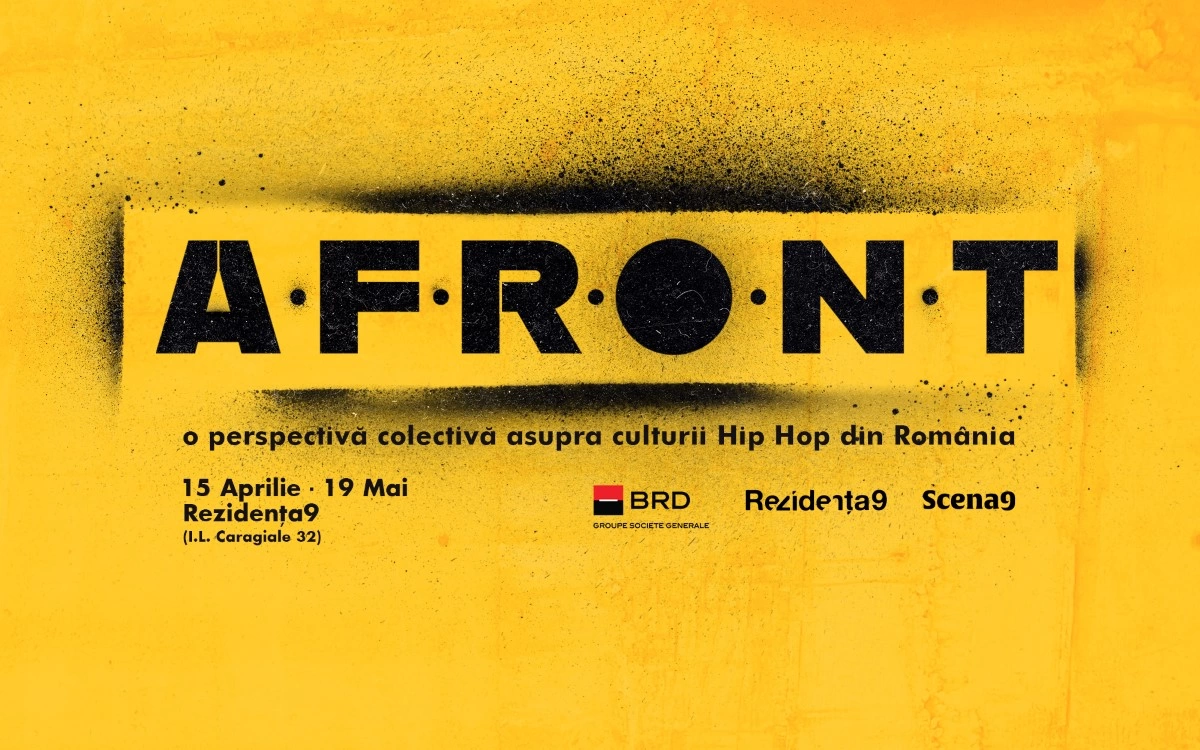This is a piece on HBO’s newest 8-episode miniseries. This is a piece about what makes people come together in this increasingly crazy world (in fact, this is an episode from the ups & downs of mankind miniseries).
I went to London a week after Brexit, two days after the Istanbul airport terrorist attack, two days before the Baghdad attacks, and one week before the killings of Alton Sterling, Philando Castile and the 5 police officers during the Black Lives Matter protests in Dallas. On June 30 and July 1st, HBO did a press junket in London with the team from The Night Of, and invited journalists from all over the world, for a detailed inspection into American justice system. We talked plenty about the liberty that television offers, versus the complete control exercised by Hollywood’s blockbusters; about how you can create a TV series that will astound the viewers, when there are so many other excellent TV series; about judgment, the traps of the system, and vulnerability; about justice and the relation between justice and truth.
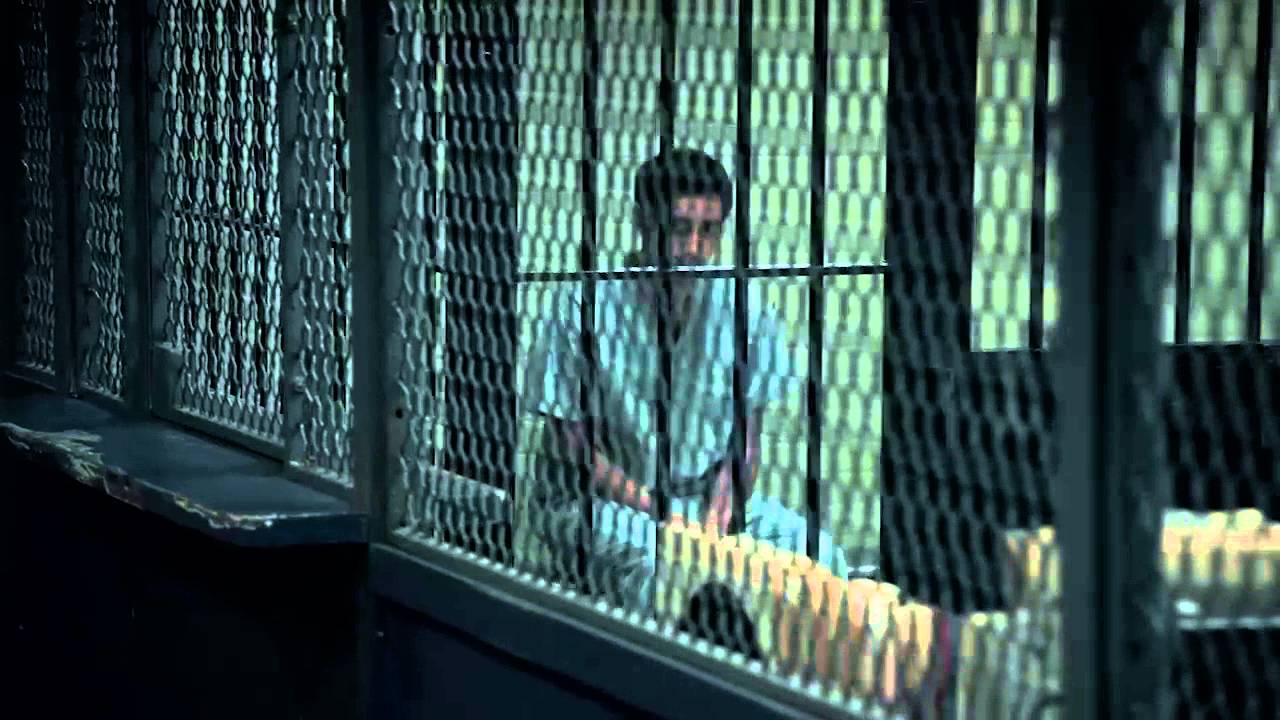
The Night Of premieres simultaneously in many countries around the world (including Romania), similar to other popular TV shows of the moment. It can be seen by millions of people this summer. People who want to kick out foreigners from the United Kingdom, people who want to work in the UK, people who want to keep their automatic gun collection intact, people who read the news about Istanbul and Baghdad, people who read the tabloids, people who don’t read anything, people who open their house up for strangers, people who don’t want immigrants in their country, people just like you and I, but also people like that next door neighbor who thinks that the Arab surely did something, he must have stabbed the beautiful, white girl.
In The Night Of, Naz (Riz Ahmed) is a New York kid with Pakistani parents. He’s a good kid, maybe too good for that city who bites you if you obey it. One night, he borrows his father’s car to get to a party and goes through a series of unfortunate evens that end the next morning, with him at a police station, accused of committing a heinous crime. Naz doesn’t rememeber what he did during the hours when the crime was committed (so we don’t know what happened either), but the man who investigates the case is convinced he knows exactly what went on. So do a large majority of the public, who in post 9/11 America, believe that a potential criminal/terrorist hides in every Muslim.
The Night Of was created by Steven Zaillian and Richard Price, and it was based on Criminal Justice, a BBC TV show with two seasons. It was adapted for the American public, thus becoming an investigation into the American justice system. The eight-hour miniseries was filmed entirely in New York (streets, parks, court houses, jails, apartments). Naz, the main character, became in the American version, a son of Pakistani immigrants in a world following 9/11, which adds yet another discussion theme to the table. The first reviews say that The Night Of has something from the great TV shows, such as The Sopranos or The Wire, and that HBO is making a comeback, after flops such as Vinyl and the second season of True Detective.
The Night Of has a dream team behind it: John Turturro, Richard Price (from The Wire), Steven Zaillian (from pretty much everywhere, except television), Riz Ahmed (the new star of British cinema), Robert Elswit (Paul Thomas Anderson’s Director of Photography), Jane Tranter (a super producer), and James Gandolfini’s ghost (he was supposed to play Turturro’s part). The Night Of is magnificently shot, with a blue tinge over the city of New York, a group of excellent actors – there is a total of around 200 roles – and some insights into the system that allows someone who is innocent to be unjustly accused of murder and sent to the Rikers Island purgatory. In a way, it is an old story, but not so much, especially in the context of Serial or Making a Murderer. What The Night Of has on top of those, is a dose of heightened vulnerability for every single character, a story of forced growth, and also Zaillian’s attention to gestures, looks, lines, and details that give the story depth.
I saw 7 of the 8 episodes, but I promise I will not give away any spoilers. I will only tell you what I talked about with Riz Ahmed, Jane Tranter, Steven Zaillian, Amara Karan, and John Turturro. And about how a ceramic bird from Iași found itself in London.
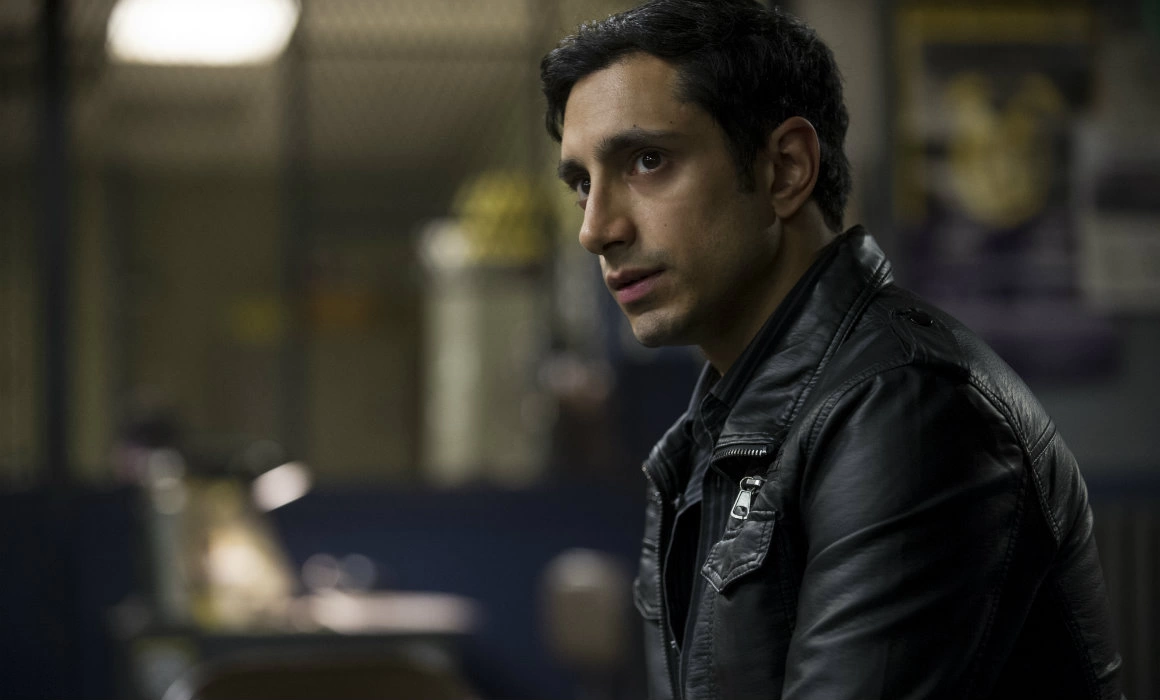
Riz Ahmed, actor
Riz is a Londoner, the son of Pakistani immigrants. He studied Philosophy, Economics and Politics at Oxford, and then he tried his hand at acting at the Central School for Speech and Drama. He’s a rapper and a director. He did this short movie, inspired by his suburban childhood and he launched Englistan, a mixtape. He’s got lyrics such as: I’m losing my religion to tomorrow’s headline”, and he’s not afraid of speaking his own mind. For example, he’s him on Brexit: Never in my life have I seen so many people swallow so many blatant lies, been blinded by such patriotism and xenophobia, to harm themselves. He was a clumsy terrorist in the satire Four Lions (I beg of you to watch it, if you haven’t already) and Jake Gyllenhaal’s right hand in Nightcrawler. He’s the first Muslim to star in Star Wars (#proudchildofanimmigrant), that premiers this fall. Until then, he’s Naz Khan in The Night Of, the doe-eyed kid who’s accused of a heinous crime.
Context
“It's strangely very timely, but I have to say that we shot the pilot in 2012, before there was anyone called Donald Trump running for president. So it's not like this was cynically timed to coincide with the rise of Islamophobia. Perhaps watching it through these eyes, living in these particular times, we're focusing on that time more that it was intended. To me, it's an examination of the criminal justice system. Also, it's a story of coming of age for many of the characters, whether it's Box [the detective] trying to find a sense of who he is once he retires from the job, or John Turturro's character trying to find a pride in who he is, as he wants to be a shepherd but he himself is lost, or my character and the way he tries to find himself after all his dreams were shattered. Who are you? When you're put in the furnace, what's the element that remains?“
Indie Movies vs HBO Series
“I'm more used to doing indie films, where you work for 3 or 5 weeks, not 8 months. Sitting in prison for 8 months is very different than sitting in a car for 3 weeks [in Nightcrawler]. In indie cinema, you feel as if you are a sprinter, whereas this is a marathon. You have to find a different way of working, of managing your energy. I quickly realized that trying to stay for 8 months in a character whose life is falling apart is a bad idea.”

Research
„- I went to Rikers Island, we all went there, that was crazy.
- How long? What did you do?
- You want get an inside scoop.
- Not the scoop, I want to understand.
- We took some drugs, got high... I’m joking. We couldn't talk to the inmates, we talked to the correctional officers, it was interesting that everyone there is black, some Latinos. Just by authentically telling a story about the criminal justice system, it tangentially becomes about race. It's interesting how those themes emerged. But yes, I went to Rikers, I went to community colleges in Queens, high schools in the Bronx and in Queens, did some youth work with some South Asian youth action charities, gave some workshops there, interviewed people that had been in prison, NGO working with families, defense attorneys, just spending hours talking to people and recording it.”
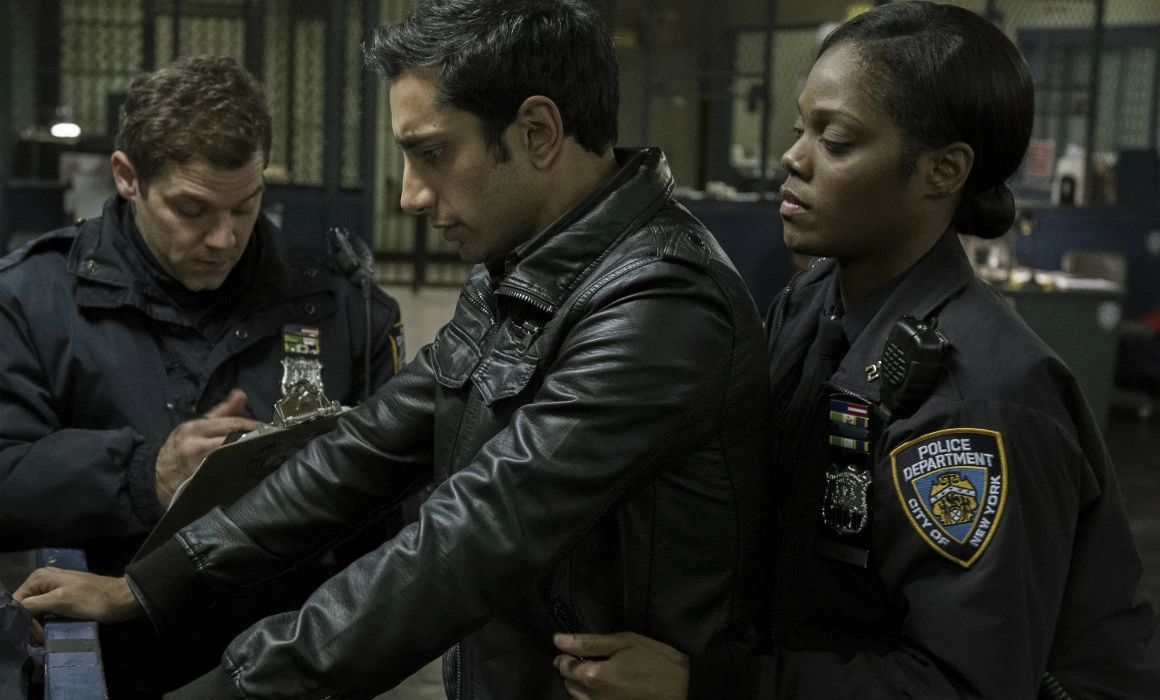
Jane Tranter, producer
Jane is a woman who constantly smiles, who seems as if she’s always in a good mood. She enters the room where the interviews are held, she looks at us and says I would like to welcome all our EU friends. Please help us, help us! Don't leave us! Don't leave us. Thank you. It’s cool to laugh in the face of adversity, we can all agree on that. Jane Tranter has worked for years for the BBC, where she reinvented television production. In 2009, she received the BAFTA Special Award for her outstanding creative contribution to the TV industry. Last year, she started Bad Wolf, her own independent production company.
Matryoshka Doll
“If you cut Steven Zaillian in half, you will find The Night Of inside. And if you cut The Night Of in half, you will find Steven Zaillian inside.”
Why
“HBO s attraction to the piece was that it was a brilliant piece of work by Peter Moffat [writer of Criminal Justice, the British TV show that inspired The Night Of] and that it was a universally recognizable starting point. It’s the story of someone's son, brother, next door neighbor, boyfriend. The story of what happens when you make a series of mistakes that culminate with the biggest mistake of your life.”
5 Things a TV Show Must Do to be Truly Remarkable in this Golden Age of Television Shows
“1. I think that what makes something exceptional, and stand out from something which is just good, is that, however good your story is and however well told it is, it also has to have something to say.
2. I think it helps if you are going in the opposite direction of the general television traffic. So if everybody is doing something with huge amounts of special effects, amending men and women knowing what men are for and sandals and swords, then it really helps if you say Well, we’re just doing something set on the streets of New York and we're doing it without any effects. So if it's complicated, be simple. And if the trend is simple, be more complicated.
3. Know that, but don’t think too much about it, because if you do that, you'll end up manipulating your drama and doing something really concocted.
4. The 4th rule for myself would be to always work with people who are more talented than yourself in absolutely everything. I had a brilliant producer, Scott Ferguson, who’s much more talented than I am. You just go and you hire talent and attitude and I think that makes a difference.
5. And the final thing: I don't think that any piece of television can be exceptional television if it is not loved into existence. It's not so dissimilar from bringing up children, they have to be the apple of someone's eye. The Night Of, for me, has been a seven years and a half journey, it has been every other beat of my heart and you can see that.”
UK vs America
“As an independent producer in the UK, everything falls on your shoulders in a way which is both glorious and not glorious at the same time, depending on how you’re looking at it. You’re raising the money, managing the cash flow, you’re having to really pull everything, and in the US you don’t do that. It’s quite liberating as a producer. What I love about the American system is that it puts writers right at the heart of everything. They become show runners, responsible for every single particle of the creative process. Steven, for example, is a writer, director, and producer - it makes the creative vision really strong.”
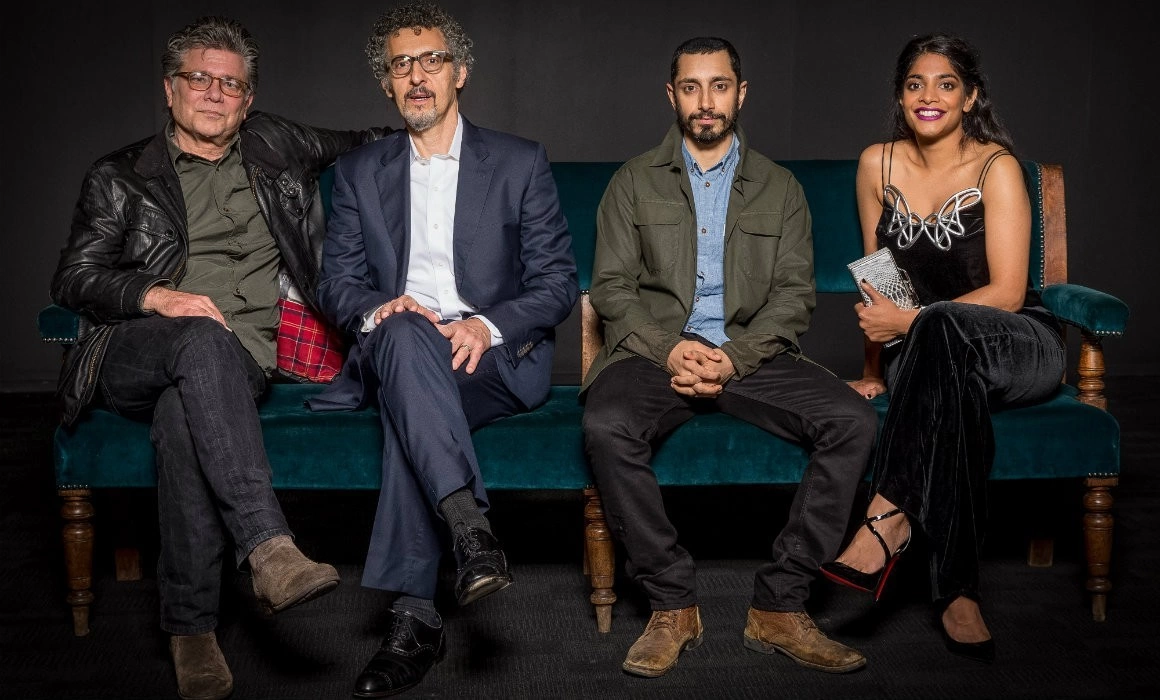
Steven Zaillian, director and co-writer
Steven Zaillian is a writer (Schindler’s List, Awakenings, American Gangster, The Girl with the Dragon Tattoo) and director (A Civil Action and Searching for Bobby Fisher). Together with Richard Price, they wrote the screenplay for The Night Of and he got to direct 7 of the 8 episodes, even though in the beginning, he only meant to direct the pilot. On the day of the interview, he appeared to be very tired, as if it was only now that he got to sit down on, after working uninterruptedly for seven years and a half.
Directing
“Originally, my intention was just to do the pilot, like people do, they do a pilot and they walk away. Then, I decided to do a second one and a third one to introduce all the main characters. I thought, now the characters have been set, they know who they are, I know who they are, I'll feel comfortable about walking away. As it turns out I didn’t feel that comfortable about walking away. You’ll do one more and one more, then you reach one point where you did so much that you have to finish it. So I became possessive about it. ”
Advice
“I met with Richie Roberts, the person Russell Crowe’s character from American Gangster is based on. He was a detective, he was a prosecuting attorney, and now he's a defense attorney who does murder cases. He was so knowledgeable about everything. So he was my main source. He read the script, he gave some advice, and he was a great guy to have as a consultant. And then we had other consultants, people who had been in Rikers, lawyers, detectives, pretty much in every aspect of the story. Going to Rikers it's not something many people do unless they are set there, they don't give tours of Rikers. I was a little uncomfortable about the prison story in it, before we went there. I didn’t know what to do, I had never been to a prison before. It’s important to me to have a confidence when I'm doing something that I know what the place looks and feels like.”
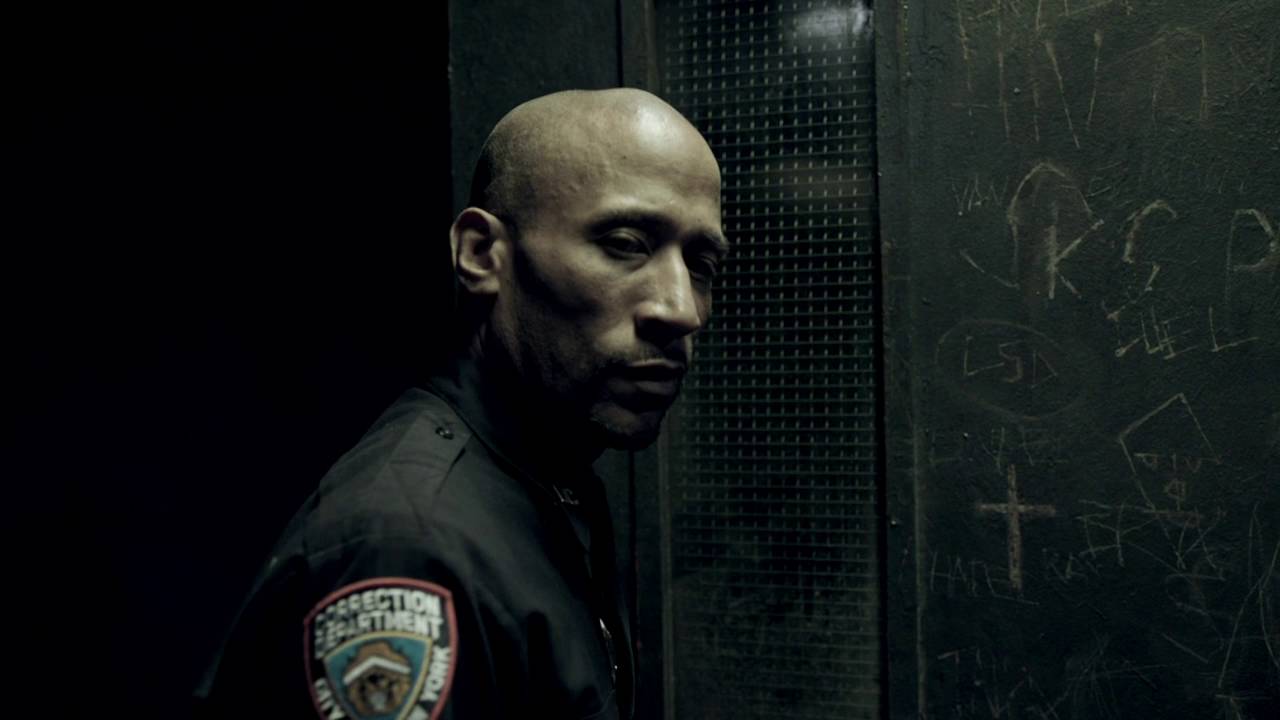
Truth vs Justice
“It's important for the system to care about that philosophical issue. But the reality is that there are so many cases of the plea deal [the possibility of getting a reduced sentence, even if you’re not guilty] and if there wasn't for the plea deal, the system would totally break down. Because there's not enough time to give everybody a fair deal. What's happened is that the plea deal has become the way most cases, around 95 per cent of them, are settled. That’s what Turturro's character does, because, frankly, that what most people do. And the plea deal is attractive because you know what it is and you get to think about it and decide for or against it . The bad side is what if you don’t do it? Are you going to plead guilty or are you going to take your chances with a trial? Statistics are impossible to know, but it is believed that a lot of people who are innocent take up a plea deal and go to prison because they are convinced by their lawyers that it's not worth it to go to trial and you could maybe even get three times as much. And it’s not just the poor. The difference is the rich are going to be waiting for the trial at their house, they can certainly pay the bail to get out, as opposed to sitting in Rikers Island for three years. God knows what's going to happen to you while you’re waiting.”
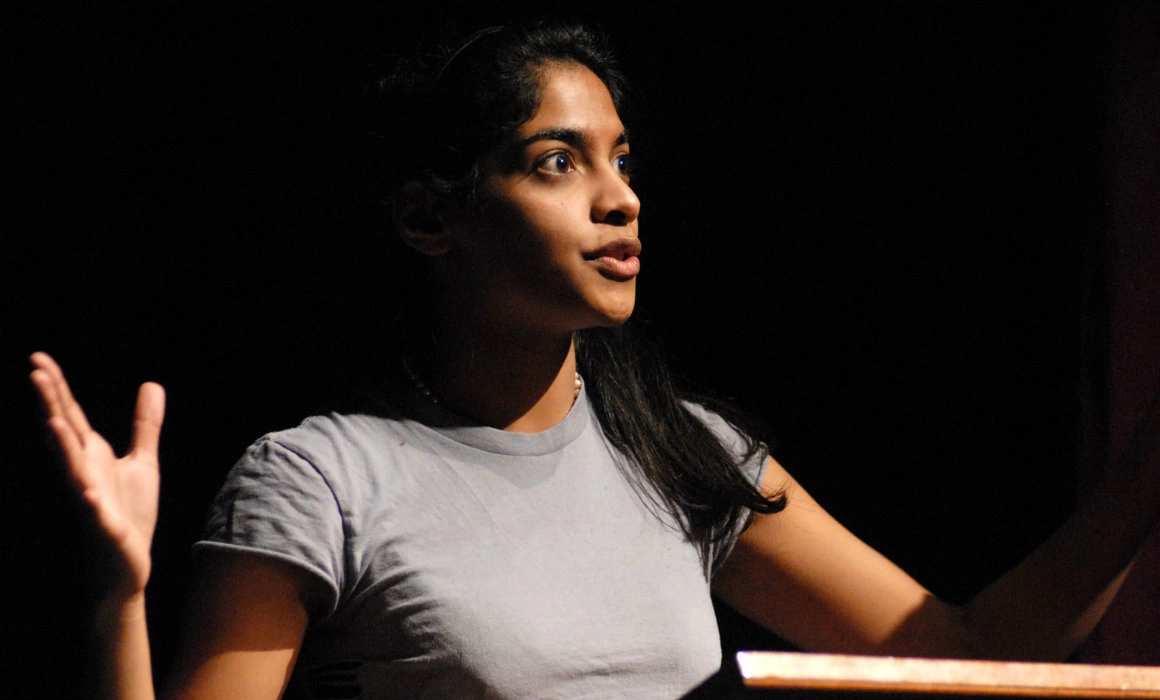
Amara Karan, actress
Like Riz, Amara is a child of immigrants. They came to England from Sri Lanka, via Zambia. Like Riz, she studied Philosophy, Economics, and Politics at Oxford. A month after she graduated theater, she got a part in Wes Anderson’s The Darjeeling Limited. In The Night Of, she plays the role of Chandra, a rookie lawyer who takes the case of Naz (Riz Ahmed) and who receives priceless advice from Stone (John Turturro). She has at least one stunning scene, where she comes face to face with a suspicious grave digger. Amara is filled with enthusiasm, she laughs and talks passionately about Chandra, as if she were a part of her.
Why
“When I started the project, I had an idea of the talent involved, but I had no idea it was going to be like this, I didn't know it was going to be this good. Steven's pedigree is second to none, John is an unbelievable force of cinema, and Riz is incredible; he's exactly what the show needed to be sexy, dynamic, dangerous, innocent, and raw. I would see scenes like She walks through the corridor and I thought to myself What? Why are we filming this, this is going to be cut, right, in the edit? Because we knew we were running out of time and these scenes were getting longer than they needed to be. When I saw it finally, I said So, this is someone who knows what the timing or the pacing of the storytelling is going to be, at the beginning, when they're writing the script, so there's been thought and planning. I had never seen that before. Good of Steven for knowing what he wanted and insisting that it happened in that way. I know he had pressures from every single direction to do it the way everything else is done, quicker, faster, simpler, which has its merits for those types of shows. But if you want to do something different and exceptional, you have to offer the audience something completely different.”
Her character
“Chandra is young in the system. She's new and doing it for the right reasons. Actually, at the beginning I was too invested in it, Steven said Just do less, you don't need to give us this level of investment, because you don't know this guy, you don't know his family, it's not personal yet, and it becomes personal obviously. She's capable of being ambitious for herself and for her own career. When people are effective, it's a marriage between the two.”
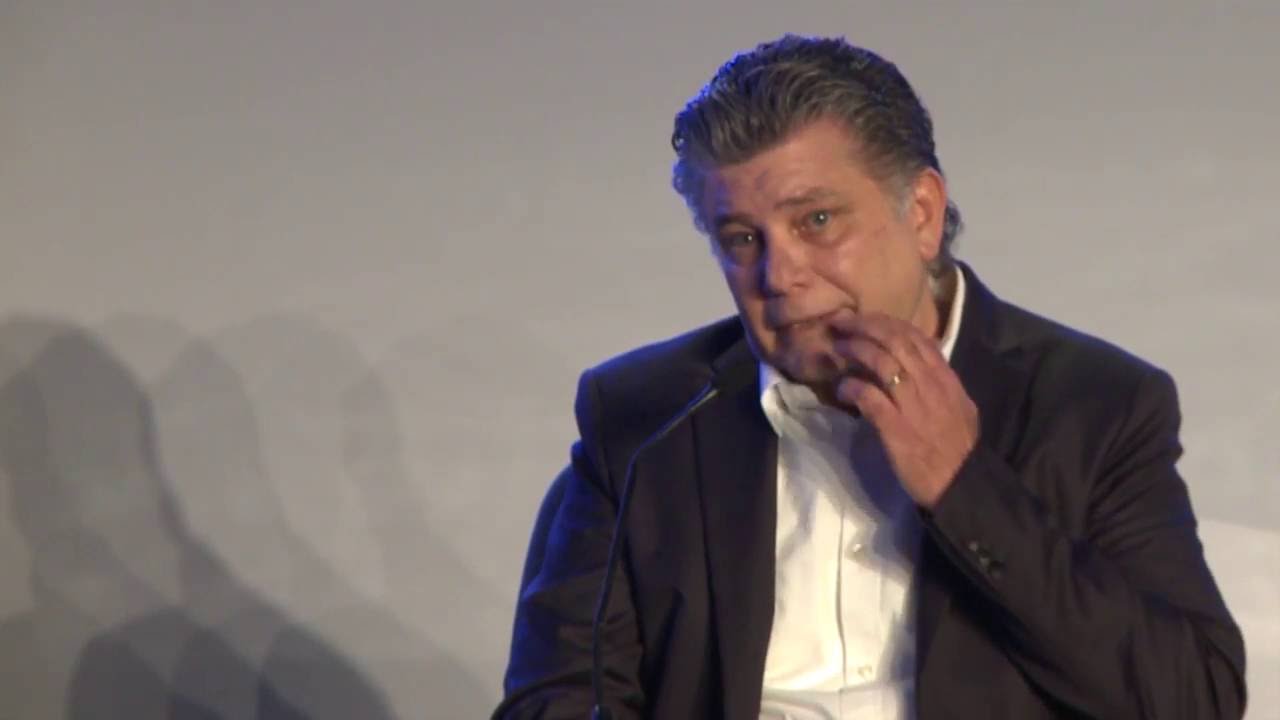
The System
“The arraignment process is something I had never heard of, I was shocked it even existed. Steven told us to go to the arraignment court in New York and have a look at how that procedure runs; to show us the culture of the people that work there. It's like a factory, very unemotional, it's about reading rights and you've got convicts coming through one door out of the jail cell at the back of the courtroom, joining up with their lawyers in front of the judge, for a couple of minutes. Steven wanted us to realize that the whole criminal justice system is a club, and that comes across in the show. And also, that if you're a judge, the things you're hearing every day, it has to fall off your shoulders. You're not taking it in at that level all the time, otherwise we wouldn't be able to represent your clients, because you'd fall apart with the severity of the emotion. You’ve got to be detached to be professional. Steven made sure that Chandra looked like a lawyer, not like a care worker or a social worker.”
A day of shooting in New York
“If you're on location, it's a little bit mad. It’s tough on all of us, there's a communication breakdown. If you're out on the street and everybody is honking their horns, then I can barely hear you. I have to shout and use hand gestures. I loved New York so much, it helped to give authenticity to that piece.”
The Future
“I’m shooting the second series of Stan Lee's Lucky Man [Dragoș Bucur is in the trailer, he’s the guy screaming on a chair]. I finished shooting on Friday night in New York, had the wrap party on Saturday, I flew to London on Sunday, and I started this new project on Monday, where I play a detective. This is what I meant about the club… It was 12 months of continuous filming.”
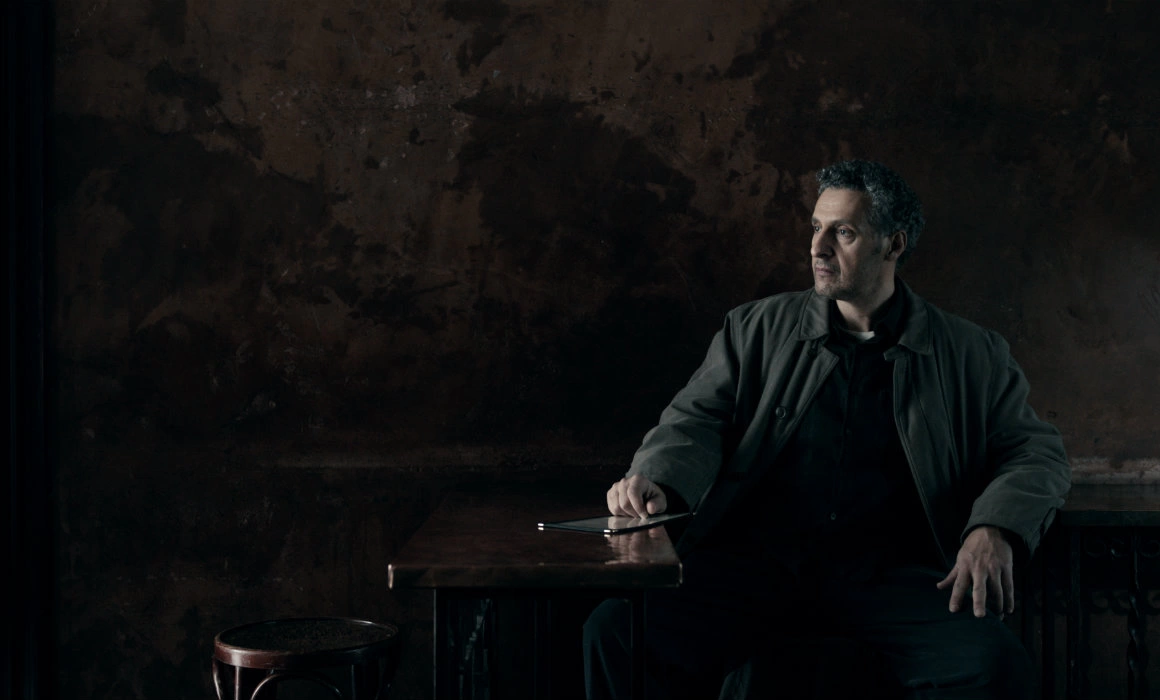
John Turturro, actor
“Hi, I’m John”, Turturro said and shook hands with all the journalists at the table. He then sat down and poured himself a glass of water. May I? he asked. Of course, we said, anything you like. There is no need to introduce Turturro. From Do the Right Thing to Barton Fink and, more recently, Mia Madre, this guy is brilliant. In The Night Of, he is Jack Stone, the run-down lawyer who gets mocked in court and inside the police station. He’s the lawyer who won’t quit and who starts a parallel inquiry to demonstrate that the Pakistani kid is innocent. The role of Jack Stone was supposed to go to James Gandolfini, but he died after shooting the pilot. Then, the role got shifted to Al Pacino, who couldn’t do it, so the role went to Turturro, who is absolutely brilliant in it.
Why
“It’s beautiful when you have good material, your imagination can get going. I had a lot of time to think about it, prepare, and meet different lawyers; some successful, some struggling. I’ve known Richard for many years and I’ve worked with him a couple of times and I’ve almost worked on Steve’s first movie. It was just a fantastic combination, when they did approach me finally, I read a few pages and then I asked if I could read all of them. I was wowed and I couldn’t stop reading. It’s a novelistic approach about a crime, the system, the cost of being in the system, the contradictions of it and there are no perfect characters in it. I didn’t watch the original BBC show, because I wanted to have a fresh mind, but they told me they were inspired by the documentary The Staircase, and I thought that was brilliant. I also thought it was interesting that there are people in the world who have tremendous capability of being good at something, but they just don’t have the stomach for it and it comes out in their skin, their life, their everything. There are people I know, even in my profession, who are really talented, but they don’t have the stomach for it. They can’t take the rejection, getting crucified in the papers.
I thought all the characters were interesting, but to me, just seeing what this world does to people… And also, what I was very attracted by was that I like things that deal with the minutiae of things. When the kid goes to jail, you think Oh, this is horrible, even if you’ve never been inside a jail. Writers like Dostoievski, Soljenițîn or Primo Levi, they take you through all those little minutiae and you get an understanding of the character and it affects who you are.”
Gandolfini
“James was a dear, dear friend of mine. I didn’t want to watch it [the scene Gandolfini shot as Jack Stone for the pilot], but I did watch it with one eyed closed. Oh, man. He was a close friend of mine. He was the lead in my movie, Romance and Cigarettes, and I’ve known him for many years, I went to his wedding, our parents’ funeral. During the filming of the series, I just kept it in my pocket and I did think about him, about my friend.”
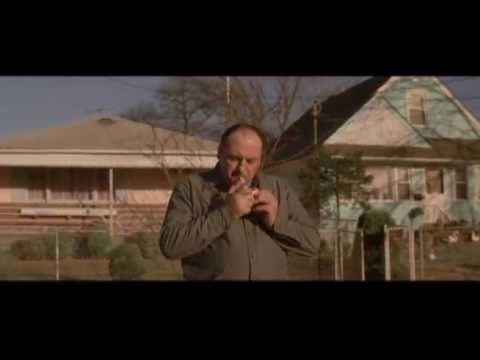
Lebowsky [rumors of a sequel]
“I can’t legally speak of it, because my lawyer is yelling at me not to speak about it. Until things are all signed, you can’t talk about it. I can tell you I’ve been bowling, OK? A lot! And I’m getting better!”
“It’s a funny thing, I talk to guys who are soldiers, and they say that The Big Lebowsky is one of the films they take with them when they go to fight. Because it makes them laugh, that’s why. It makes them laugh.”
Tell us about Dostoyevsky
“I think Richard is really influenced by Dostoyevsky. I think the script had those elements of grey from Crime and Punishment. He is a writer that I read at a certain age, especially Notes from the Underground, with these people on the fringes of society. The complexity and the contradiction of that interested Richard as a writer. Steve said he didn’t know that much about the system. Richard’s lived in it, he lives with cops, he should be a cop. Years ago, when I rode with the homicide squad for Clockers, I would ride with them and I learned so much just hanging out with those guys. I was the actor who was always very lucky, there was always a murder the night I was on. They would always laugh when I would show up Turturro is here, there will be a murder tonight! They let me do fingerprints, putting the bags on bodies. The first time I thought I was going to puke and they said Make sure you have a bucket! People who work in those fields have the darkest humor in the world, because they have to survive.”
The Lawyers
“Yes, I spent a lot of time with the guys trying to get clients in hallways. But sometimes, you can meet a lawyer who’s really successful, but it costs him a lot. One lawyer in particular was able to lay out what he went through in a brilliant way; he was the lawyer that Stone could have been, if he was able to compartmentalize his life. His name is Kenny Montgomery, he’s a star, he’s a big, tall, and very handsome black guy, who looks like Idris Elba. And I kept going back to him, What about this? What about that? He helped me a lot. And I was inspired by this article about this kid who was incarcerated, Kalif Browder, who killed himself after three years of staying in Rikers. I thought this is really what it’s about, the whole system and what it can do to someone.”
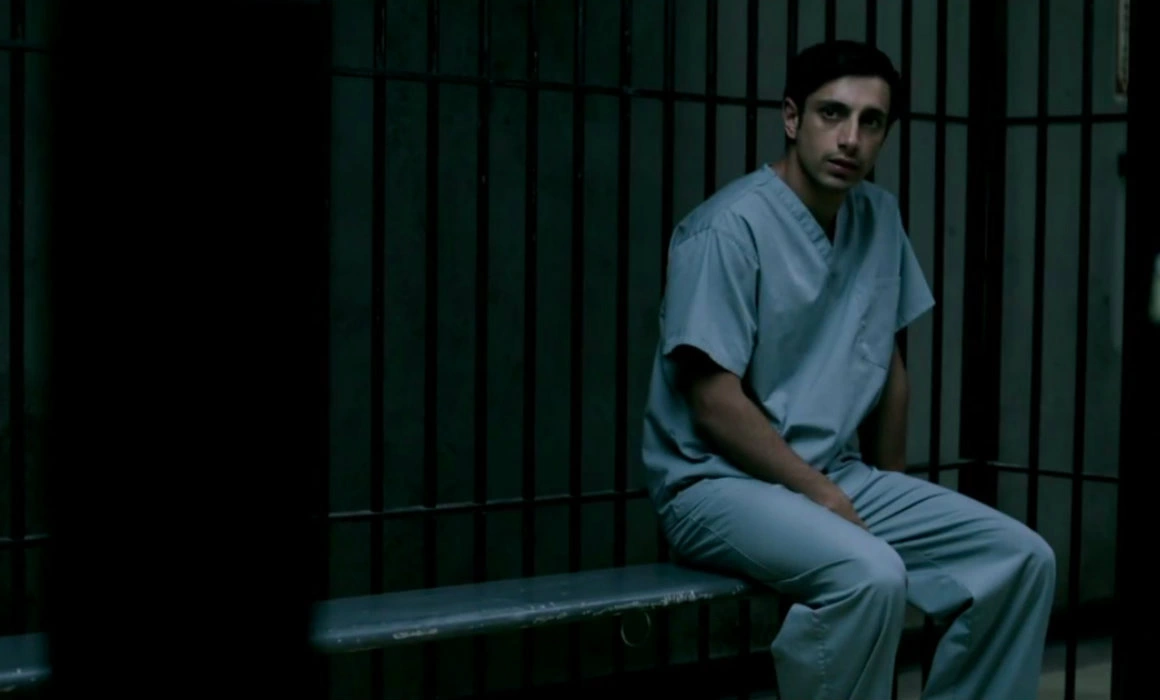
Riz Ahmed, actor [again]
Racism [in The Night Of, racism isn’t just for white people]
“A lot of ethnic minorities in this country recently voted to stop immigration. In the 80’s, in this country, someone like me would be called black. If you were Irish, you were probably considered black. At the end of the 90’s, it fragmented and then I wasn't black anymore, I am a Paki. And then, post 9/11, I am a Muslim. In post 7/7, I'm a moderate Muslim. The fragmentation of minorities and people of color is not an accident, it's something that is exercised systematically. We turn on each other. And it's the great lie that won this referendum, which is that the reason you have nothing is because of your neighbor. Not because of me, who has everything. I'm so sad about this vote.
A journalist from Malaysia: I've covered everything, 9/11, and here, the bombing, but tonight, coming out from the house, I was so scared, because I'm so visible as a Muslim, I even asked my son to come and fetch me later.
- I'm so sorry about that. Where do you live?
- South of London. I've never been so scared, I've done the bombings of King's Cross, I've done the riots but I've never been this scared. Because suddenly, you are so aware that people are looking at you and it's you and the others.
- It's a really critical moment, everywhere it feels like... You’ve got the rise of the BJP in India, you've got what's happening in America with Trump, you've got what's happening in Europe, where it kind of feels like the 1930’s all over again. I think in this time, you just ask yourself What can I do? and you don't know, you don't know what you can do. But maybe we can try and tell stories that expand people's empathy. And if people can identify with these characters, as though they were themselves, I think it's a step in the right direction. At least that's what I like to tell myself. Thanks for coming for so, so, so far away.”
* At the BFI screening of the first episode of The Night Of, I sat next to the Malaysian journalist. Her name is Zaharah, she’s 36, and lives in London. She tells me that the referendum scared her badly and that she no longer feels safe in England. Oh, you’re from Romania? she asks. I’ve always thought of going, I have a friend there. They’re the ambassador of Malaysia. We both laugh at the coincidence and then she tells me she found at least two mistakes in the series’ first episode. She spent years in courts, to write about the murders in England that involved Malaysian citizens, so she knows how the shirt of a person who stabbed someone 20 times should look like. Whatever it is, it’s not clean. We laugh again. She gives me her card. I promise to write.
** In 2011, I was in New York for two months. One day, I got a ticket for a screening of Passione, a documentary directed by Turturro about music in Naples. At the end, Turturro came out in the cinema’s hallway and talked to everybody. He even talked to me! :) People were patting him on the back, congratulating him, he was smiling and looked as if he would have taken all of us home with him. When I found out that I was going to London for this interview, I said to myself I should thank him for that autograph, five years ago. I packed with me a ceramic bird, the type that was quite common when I was growing up (where you put some water in the bird and blow through the tail and it whistles). At the end of the interview, I got up and went straight to him, Mister Turturro, you gave me an autograph five years ago, and I wanted to say thank you for that. This is a bird that… I explained to him the way it works, his eyes went wide and said Oh, now you can write that Turturro likes to whistle through a bird’s butt and kissed me on the cheek. The rest of the journalists were rolling on the floor laughing and I thought it was a good thing to chip away at the solemnity of professionalism and give someone a bird. We’re only human.
Translation from the Romanian by Cristina Costea.
